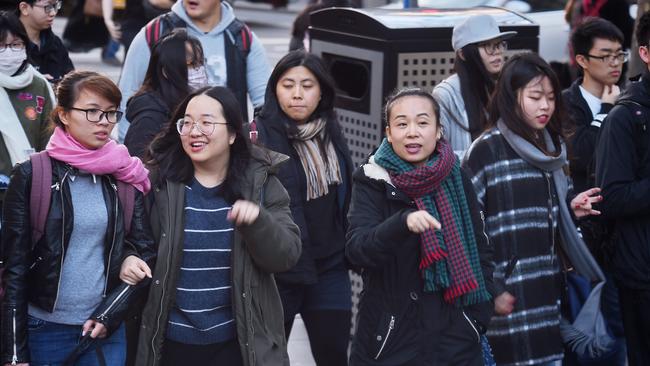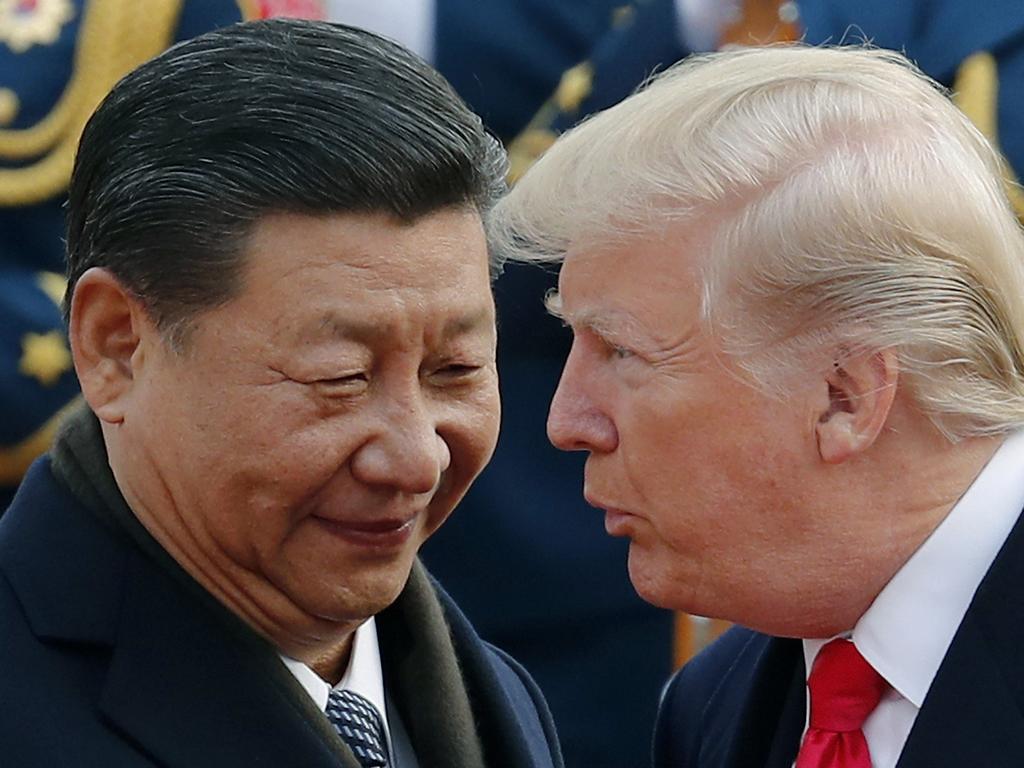
Because of our unique situation we are arguably more exposed than either China or the US.
Indeed, when the rest of the world discovers what is happening Down Under, they will be aghast. The Australian dollar is vulnerable.
Both China and the US have been preparing for a possible trade war since President Donald Trump took office.
Australia’s two major political parties — but particularly the ALP — have assumed it will not happen and have all the wrong policies for such an event.
MORE: China announces new tariffs on $60bn of US goods
And, of course, they may be right, and China and the US will reach agreement as seemed likely a week or two ago.
But as I have been pointing out it is very hard to get discussions back on track when one party (China) realises they gave too much away and goes back on what they had agreed.
To resolve stalemates like that usually requires extreme pain and major falls in stock markets. We got a taste of what could be ahead when Wall Street opened this week.
Before I explain why we have all the wrong policies to cope with a trade war, it’s important to set out what is ahead for the nation of Australia if the trade war becomes prolonged.
China slows and when it does that will obviously reduce our mineral export and government revenue. But we are braced for that because we have been through similar events so many times before.
What we are not prepared for is the likely fall in tourism and Chinese students coming to Australia. Apart of being a base of our education industry the massive influx of Chinese students is the pillar that supports the inner-city apartment market in Sydney and Melbourne. And Chinese tourism pours money into communities around the nation, but particularly on the east coast.
If that was all that was happening, then again, we would cope but independent of the trade war repercussions, under the watch of the Coalition, we have virtually locked in a massive fall for one of our biggest employers—the suburban residential housing market in Sydney and Melbourne.
I explained yesterday how this crisis will hit the nation in 2020. It is currently masked by the fact that builders are fulfilling past orders. Put the trade war impacts and residential building slump together and Australia faces a very nasty situation.
And with only a few days before the election, the. opinion pollsters are telling us that it’s all over and Bill Shorten is about to be prime minister.
Had the ALP policies been introduced, say, a year ago or when the trade war is settled then we would cope.
But to try and rectify an alleged intergenerational tax unfairness in the middle of a trade war would be catastrophic.
Both the US and China will foster their local demand to cushion reduced exports. The ALP is imposing a $4.4 billion annual retirement and pensioners tax on more than one million elderly retirees who might otherwise have spent some of their accumulated savings on domestic travel. So, our vast tourism infrastructure gets two blows--- reduction in Chinese visitors and a decimation of the local retirement travel market.
We have a building industry set for a severe decline in 2020 and the ALP plans to introduce negative gearing clamps. I have sympathy for what the ALP is trying to do but it’s pure madness to introduce the measures in the middle of building slump and trade war.
On top of all this in the middle of the trade war we have a bank credit squeeze.
Our banks have already been weakened by paying out billions to cover past sins. The credit squeeze has been imposed because APRA and ASIC are atoning for both their past mistakes and those of the banks. Again, what they are doing makes sense but not in the current environment.
And the Reserve Bank’s Martin Place bunker is remote from what is happening in the nation, which is why their forecasts are nearly always wrong or too late. The Reserve Bank plans to reduce interest rates but that will have no impact. The Reserve Bank should have been at the forefront of warning the nation about the dangers of what APRA and ASIC were doing at a vulnerable time.
China is quietly spreading the word that it might start selling its US securities. At the moment that is not happening and there is a rush to US bonds for safety. If China was to start selling bonds global and Australian interest rates would rise.
And finally, we have the multitude of Australians mortgaged to the hilt, including property investments.
The Commonwealth Bank has made provisions but there will be a lot more if the trade war is prolonged and the winner of the May 18 election does not adopt new policies.
But finally, some good news.
Scott Morrison announced a low-deposit home scheme. It was perfect policy for the current situation except that it is not large enough. To its great credit the ALP matched it. But both sides were playing politics. Neither of them understood that they were taking a preliminary step to mitigate the combination of the trade war and the domestic building slump.





A prolonged US-China trade war will hit Australia harder than any other developed nation.